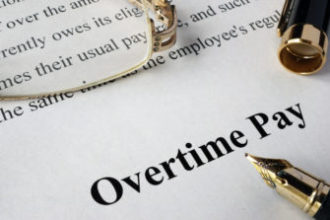The US Department of Labor Protects Ohio Workers from Retaliation Receiving adequate wages for hours worked is an entitlement that…
What is Wage Theft? Wage Theft is when an employer neglects to pay their employees for all of their time…
Call Center Employees Affected by Wage Theft In today’s age of technology and convenience, customer service is often only a…
A pizza restaurant chain in Manchester, Connecticut was held liable for violating the Fair Labor Standards Act (FLSA). An investigation…
A Brooklyn federal judge has ruled that baklava chefs’ jobs were not “creative” to meet the Fair Labor Standards Act’s…

Call center service provider Great Virtual Works is facing a collective action complaint for violations of the FLSA (Fair Labor…
The Fair Labor Standards Act (“FLSA”) was designed to protect workers from employers who may otherwise take advantage of their…
An often difficult issue for employers is whether meal breaks for non-exempt employees under the Fair Labor Standards Act (“FLSA”)…
The Fair Labor Standards Act (“FLSA”) sets forth the general requirement that all employers pay employees minimum wage and overtime…
Working Off the Clock The Fair Labor Standards Act (“FLSA”) was effectively a law beginning in 1938. It was the…
Under the Fair Labor Standards Act (“FLSA”), employees must be compensated for actual work performed, whether on or off the…
This past August, the National Labor Relations Board’s (NLRB) Office of General Counsel issued an administrative decision that could have…





